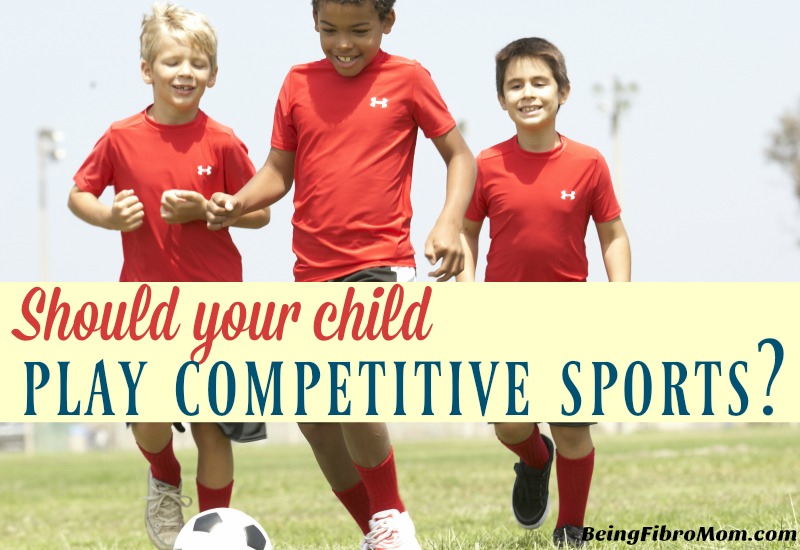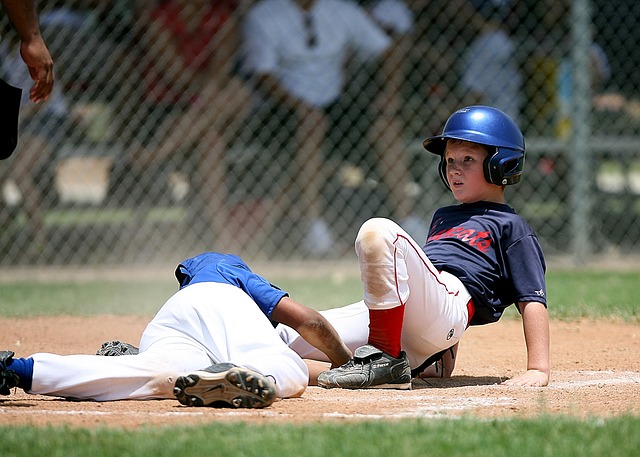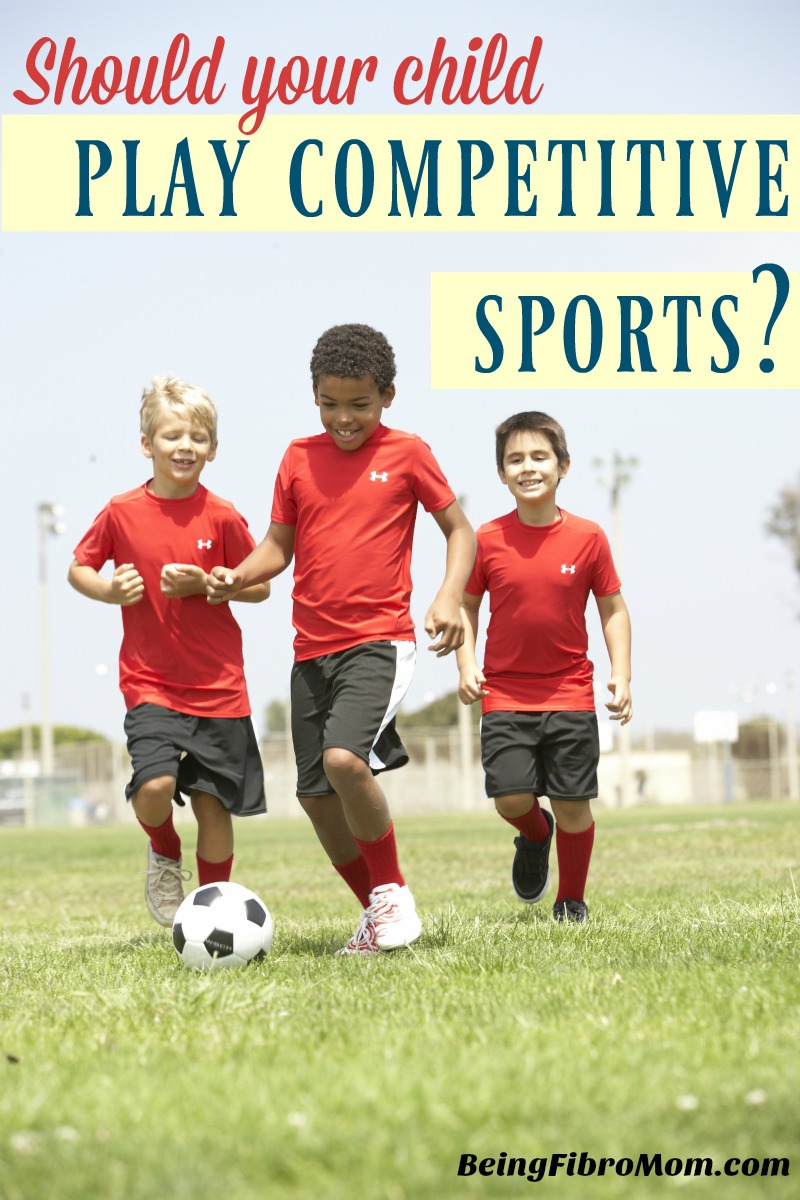
You’ve likely heard arguments from both sides; parents who believe competitive sports ruin the fun of something that was meant to bring their kids joy, and parents who believe competitive leagues teach valuable life lessons. It turns out both camps are true. There are numerous benefits inherent to competitive sports, but they do come with their drawbacks. If you’re deciding on whether or not to register your child for a competitive league, consider the following benefits and disadvantages first.
Pros and cons of children playing competitive sports #fibroparenting #parenting Share on X
The Pros of Playing Competitive Sports
Competitive sports can offer a variety of benefits for your child, from life lessons to increasing their chances of scholarships in the future.
Fitness
Children who take part in competitive sports generally must abide by tough fitness regimens. This establishes healthy exercise habits, and shows children the effects determination and tenacity can have on the body and mind. Athletes generally abide by healthier diets, and kids involved in sports tend to smoke less. This healthy behavior set up in childhood can serve them well for a lifetime.

Life Lessons
Competitive sports can teach a bevy of skills that will serve your child well later on in life in every facet, from professional tasks to personal relationship interactions. Taking part in a competitive league will help your child bolster their self-confidence, learn resilience, hone an increased level of tenacity, and teach them how to best be part of a team. These lessons can help children make positive choices now and later, and studies have shown that children who take part in sports tend to have better grades, have lower incidence of drug and alcohol abuse, and experience a better level of holistic health.
Exposure
Competitive leagues generally involve a variety of tournaments, and these tend to be great places for coaches and pro scouts to come and look for talent. This may mean extra exposure for your child, which can be very important for parents and kids looking to procure scholarships for their sport of choice. It’s a safe bet that every large tournament will have at least one important scouting individual in the stands, and this can lure many families into competitive sports to ensure their child has the best chance for success.

The Cons of Playing Competitive Sports
Despite all the advantages a competitive sport can offer your child, it definitely comes with its fair share of drawbacks.
Cost
There’s no getting around the fact that competitive sports are much more expensive. From tournament fees to travel costs, equipment expenses to apparel needs, you’ll need a great deal more to afford competitive leagues. Of course if money is of issue there are things you can do to manage it. Whether you need to find softball gloves or buy hockey gear online, there are always online sites that offer discounted equipment, so this can help offset the cost. As competitive leagues often require travel, always carpool with other families on the team when possible, and use discount travel websites to help find low-cost accommodations in your destinations. While there are ways to lessen the costs, it’s important to look at your budget before signing up your child for a competitive league.
Loss of Free Time
When a child moves from recreational to competitive leagues, they may be shocked by the loss in free time. It’s important to consider that competitive leagues generally make it impossible for kids to take part in numerous extracurricular activities, and they’ll lose the free time they have just to be kids. That’s not to say they’ll completely lose their childhood, but the commitment required for competitive sports can make socializing and experimenting with other activities impossible.

The Pressure
As competitive teams are known for using the best of the best, the pressure is intense, and this can become apparent in coaching practices. If your child is subject to the teaching of negative adult role models that care only about winning, the emotional and mental effects on your child can be severe. Excessive pressure turns a game that was originally fun into a laborious task that promotes fear, anxiety, and a loss of perspective. This pressure can result in poor examples of sportsmanship.
Listen to Your Child
Ultimately, it’s important to listen to your child. Keep up open lines of communication, and encourage your little one to tell you about their experience in sports, the good and the bad. It’s up to you to determine if they’re having fun, enjoying their teammates, and getting something beneficial about the time committed to play and practicing. If they repeatedly try to get out of practice, express their feelings that the game is no longer fun, or complain about the coaching, these may be key indicators that it’s time to rethink their involvement in competitive sports.

Pin It

Related Articles



